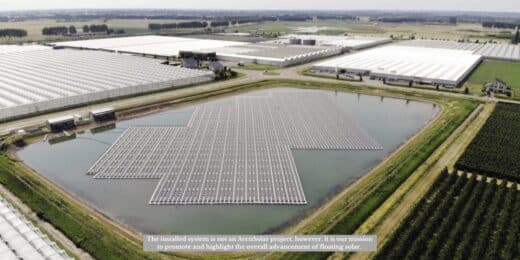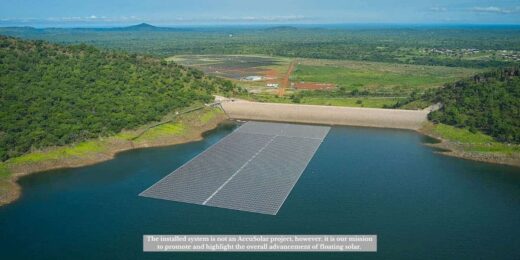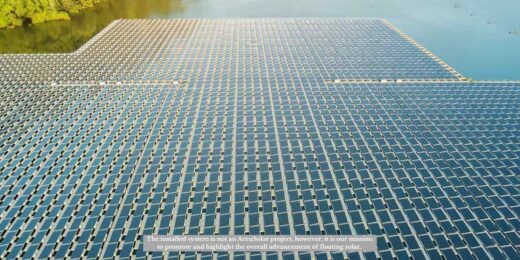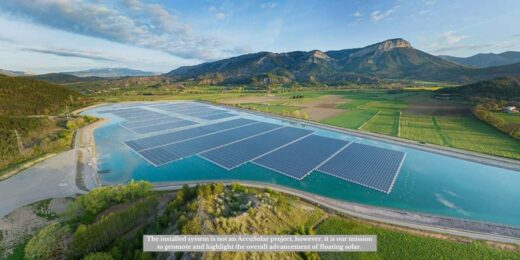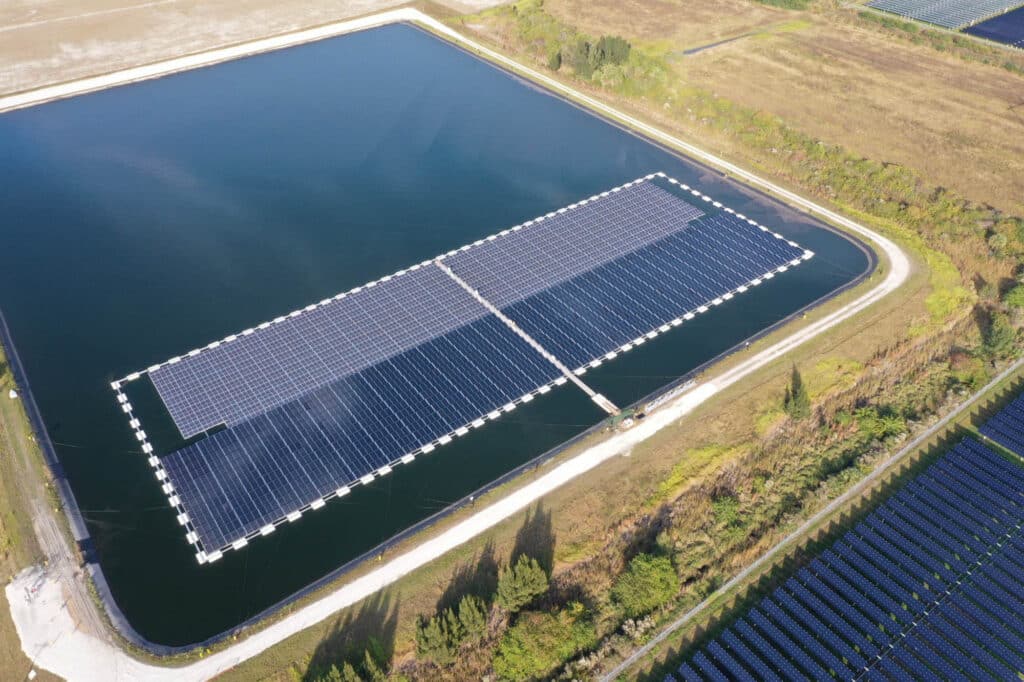Floating solar redefines renewable energy by taking solar panels off land and onto water. By utilizing vast bodies of water to capture solar energy, this approach maximizes efficiency while minimizing environmental impact. This technology is reshaping the energy landscape, delivering higher yields, cost savings, and a sustainable edge that’s hard to overlook. Although this technology is not new across the globe, it is just beginning to gain steam here in the United States. Let’s Dive into the benefits of floating solar panels.
Benefits of Floating Solar Panels
Increased Energy Output
Floating solar panels benefit from the natural cooling effect of water, allowing them to operate more efficiently compared to land-based systems. By lowering internal cell temperatures, these systems can boost energy output by 15-20%, outperforming traditional land-based solar installations. Integrating seasonal tracking can further increase energy gains by an additional 3-5%. This marked improvement in efficiency positions floating solar as an ideal solution for maximizing energy production, particularly in areas where land is limited or costly.
Reduced Water Loss from Evaporation
Floating solar systems are a powerful tool for advancing water conservation efforts. Research indicates that these installations can reduce water evaporation making them particularly valuable in drought-prone regions. Globally, this impact translates to billions of gallons of water saved each year, providing a sustainable approach to both energy generation and water resource management. By integrating floating solar, organizations can contribute to long-term environmental stewardship while addressing critical water conservation needs.
Improved Water Quality and Reduced Algae Growth
Floating solar panels not only generate clean energy but also improve water quality. While shading the surface of the water, sunlight penetration is limited, which in turn reduces algae growth. Algae can degrade water quality and make it unsafe for consumption. Floating solar helps reduce stratification further contributing to a healthier aquatic environment.
Land Conservation
As land values rise, and space becomes more limited, floating solar presents an innovative solution by leveraging bodies of water for solar installations. This preserves valuable land for essential purposes like agriculture, housing, and wildlife conservation. In Florida alone, over 450,000 acres of non-recreational water offer prime opportunities for floating solar systems, reducing the need for costly land acquisition and minimizing disruption to natural habitats. By optimizing underutilized water surfaces, floating solar supports sustainable energy development while conserving land resources.
Easy Integration with Existing Infrastructures
Floating solar systems are particularly well-suited to integrate with existing infrastructures, such as hydropower plants and water treatment facilities. These partnerships allow shared resources and streamlined operations, making it easier to implement clean energy production without significant additional investments.
Lower Operations and Maintenance Costs
Floating solar panels typically incur lower maintenance costs than traditional ground-mounted systems. By eliminating the need for vegetation management and mitigating concerns about electrical damage from burrowing rodents, these systems significantly reduce operational challenges. This streamlined maintenance translates into long-term cost savings and enhances the overall value of the solar installation.
Tax Credit Eligibility
Installing floating solar systems can also provide financial incentives through government tax credits. These installations qualify for both the Solar Investment Tax Credit (ITC) and the Production Tax Credit (PTC), which can help offset the initial costs of deployment and improve the return on investment.
Benefits of Floating Solar Panels: Driving Sustainability
With advantages including enhanced energy efficiency, water conservation, land preservation, and cost savings, floating solar represents a forward-thinking solution to contemporary environmental and economic challenges. As technology advances, floating solar is poised to become a key driver of a more sustainable future. Contact AccuSolar, a leader in U.S.-designed and manufactured Floating Solar PV systems for additional information on floating solar systems.

